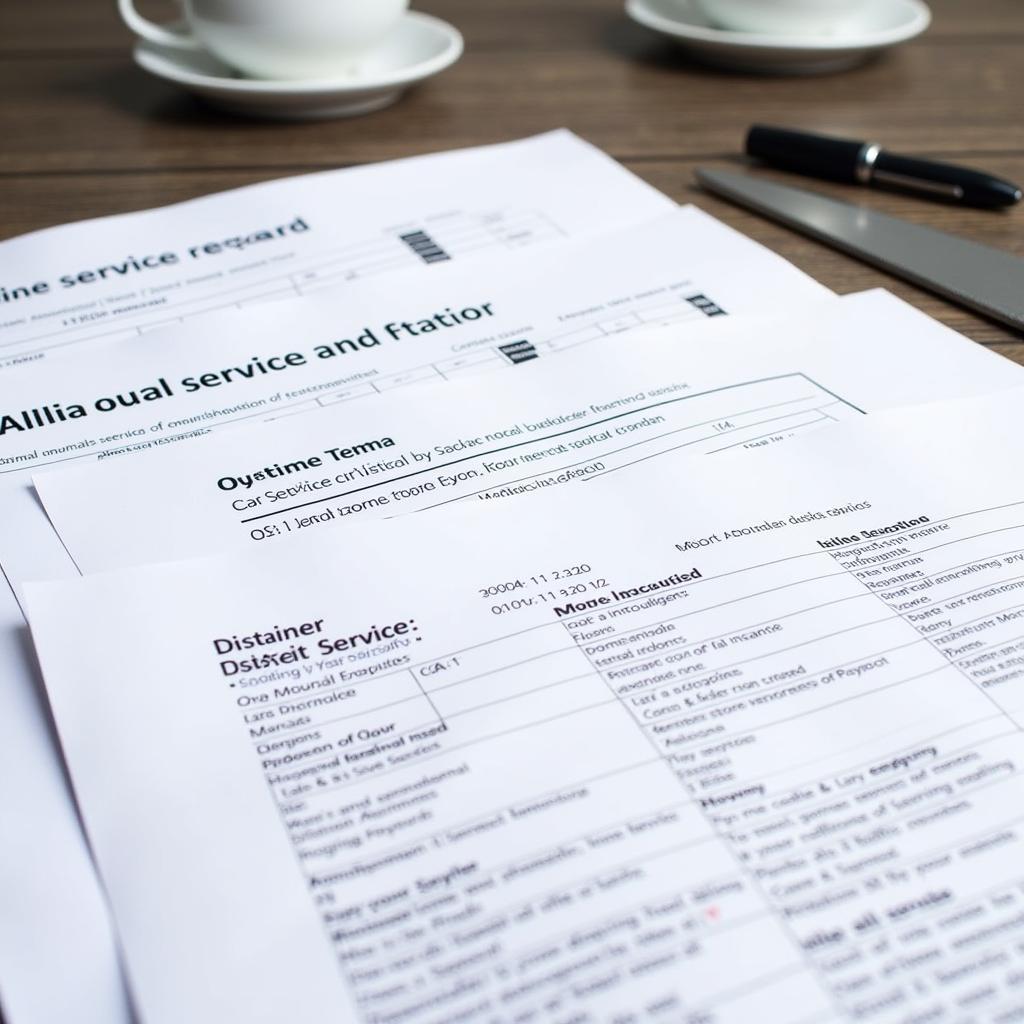How Often Are You Meant to Get Your Car Serviced?
Knowing how often to service your car is crucial for maintaining its performance, reliability, and safety. Failing to service your car regularly can lead to costly repairs down the line and even compromise your safety on the road. This comprehensive guide will help you understand car servicing schedules, factors affecting service intervals, and how to determine the best approach for your vehicle.
Understanding Car Servicing Schedules
Car manufacturers provide recommended service schedules in your owner’s manual. These schedules outline specific maintenance tasks based on mileage or time intervals, such as every 5,000 miles or every six months. However, these are often general guidelines.
Types of Car Services
There are different types of car services, ranging from basic checks to more comprehensive inspections.
- Interim Service: This service is usually recommended every 6 months or 6,000 miles and includes essential checks like oil and filter changes, brake inspections, and tire pressure checks.
- Full Service: Typically performed annually or every 12,000 miles, a full service covers all aspects of an interim service and adds more detailed inspections of various components, including the suspension, steering, and exhaust system.
- Major Service: This is the most comprehensive service and is usually recommended every 24,000 miles or two years. It includes everything in a full service, plus additional checks and replacements, such as spark plugs, fuel filters, and coolant changes.
Factors Affecting Service Intervals
While manufacturer recommendations are a good starting point, several factors can influence how often you should get your car serviced.
Driving Conditions
Driving in harsh conditions, such as extreme temperatures, stop-and-go traffic, or off-roading, puts more strain on your vehicle and may require more frequent servicing. For example, if you frequently drive in dusty or sandy areas, your air filter might need replacing more often.
Driving Style
Aggressive driving, with frequent hard acceleration and braking, can also accelerate wear and tear on your car’s components, requiring more frequent service visits.
Vehicle Age
Older vehicles generally require more frequent servicing than newer ones due to the increased likelihood of parts wearing out.
How to Determine the Best Service Schedule for Your Car
Determining the ideal service schedule for your car requires considering the manufacturer’s recommendations alongside your driving habits and the specific conditions in which you operate your vehicle.
Consulting Your Owner’s Manual
Your owner’s manual is the best place to start. It provides specific service intervals recommended by the manufacturer for your particular make and model.
Talking to a Qualified Mechanic
A qualified mechanic can assess your driving habits, the condition of your vehicle, and other factors to recommend a personalized service schedule.
“Regular maintenance is an investment, not an expense. It’s far cheaper to address minor issues before they become major problems,” says Michael Stevenson, Senior Automotive Technician at Stevenson Automotive.
Signs Your Car Needs Servicing
Even if you follow a regular service schedule, it’s essential to be aware of signs that your car might need attention sooner than expected. These can include:
- Unusual noises
- Warning lights on the dashboard
- Fluid leaks
- Decreased fuel efficiency
- Changes in handling or braking
Conclusion
Knowing How Often Are You Meant To Get Your Car Serviced is essential for preserving its longevity, performance, and safety. By understanding the various factors influencing service intervals and being attentive to your car’s condition, you can ensure it remains in optimal condition for years to come. Remember to consult your owner’s manual and seek advice from a qualified mechanic to determine the best service schedule for your specific needs.
FAQ
-
What is included in a basic car service? A basic service typically includes an oil and filter change, tire pressure check, and brake inspection.
-
How often should I get my oil changed? Generally, every 5,000-7,500 miles, but consult your owner’s manual for specific recommendations.
-
Is it necessary to follow the manufacturer’s service schedule? Following the manufacturer’s recommendations helps maintain your warranty and ensures proper vehicle maintenance.
-
What happens if I don’t service my car regularly? Neglecting regular servicing can lead to premature wear and tear, costly repairs, and reduced fuel efficiency.
-
Can I service my car myself? While some basic maintenance tasks can be performed at home, more complex procedures are best left to qualified mechanics.
-
How much does a car service cost? The cost of a car service varies depending on the type of service, your vehicle’s make and model, and the location of the service center.
-
How can I find a reliable car service center? Ask for recommendations from friends and family, check online reviews, and look for certifications and affiliations with reputable organizations.
Need assistance? Contact us via WhatsApp: +1(641)206-8880, Email: [email protected] or visit us at 456 Oak Avenue, Miami, FL 33101, USA. Our customer service team is available 24/7.

